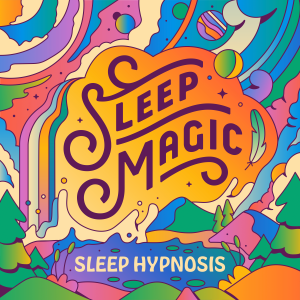

University of the Pacific, February 1, 2022
According to the recently released 2015-2020 Dietary Guidelines for Americans, small shifts in food choices can make a big difference; including a shift from solid fats to oils, like the oil in fresh avocados. On the heels of this advice, a new meta-analysis, published in the Journal of Clinical Lipidology, adds to the growing body of research that supports the use of avocados in lieu of solid fats (and foods that have higher saturated fat content) to significantly change lipid profiles.
The research, “Impact of avocado-enriched diets on plasma lipoproteins, looked at 10 unique avocado studies with 229 participants, assessing the impact of avocados on cholesterol levels. Researchers found avocado consumption (1 to 1.5 per day) significantly reduced total cholesterol (TC), “bad” low density lipoprotein cholesterol (LDL-C) and triglycerides (TG) when they were substituted for sources of saturated fat. Additionally, avocado consumption did not impact “good” high density lipoprotein cholesterol (HDL). However, the optimal amount of avocado and frequency of use needs further evaluation along with the nutritional similarities and differences between other different MUFA sources. Larger trials looking at the impact of avocados on major adverse cardiovascular events are warranted. (See conclusion of study)
20 mins of daily exercise at 70 may best stave off major heart disease in late old ageAny physical activity is better late than never but earlier in older age, better still
University of Padua (Italy), February 15, 2022
Twenty minutes of daily moderate to vigorous exercise in early old age (70-75) may best stave off major heart disease, including heart failure, in late old age (80+), suggests research published online in the journal Heart.
The findings reinforce the maxim of ‘better late than never,’ when it comes to exercise, but earlier on in older age is better still, concludes a linked editorial.
To plug this knowledge gap, the researchers drew on data from the Progetto Veneto Anziani (ProVA), a study of 3099 older Italians (65 and above). The final analysis included 2754 participants with complete data, of whom 1398 were women (60%).
The largest reduction in risk was observed for new cases of coronary heart disease and heart failure in late old age. No significant association between physical activity and stroke was observed.
Most of the participants had stable active physical activity patterns over time. Patterns of stable-high physical activity were associated with a significantly (52%) lower risk of cardiovascular disease among men compared with those with stable-low patterns.
The greatest benefits seemed to occur at the age of 70. Risk was only marginally lower at the age of 75, and no lower at the age of 80-85, suggesting that improving physical activity earlier in old age might have the most impact, say the researchers.
Psilocybin treatment for major depression effective for up to a year for most patients, study showsJohns Hopkins University, February 15, 2022
Previous studies by Johns Hopkins Medicine researchers showed that psychedelic treatment with psilocybin relieved major depressive disorder symptoms in adults for up to a month. Now, in a follow-up study of those participants, the researchers report that the substantial antidepressant effects of psilocybin-assisted therapy, given with supportive psychotherapy, may last at least a year for some patients.
A report on the new study was published on Feb. 15, 2022 in the Journal of Psychopharmacology.
“Our findings add to evidence that, under carefully controlled conditions, this is a promising therapeutic approach that can lead to significant and durable improvements in depression,” says Natalie Gukasyan, M.D., assistant professor of psychiatry and behavioral sciences at the Johns Hopkins University School of Medicine. She cautions, however, that “the results we see are in a research setting and require quite a lot of preparation and structured support from trained clinicians and therapists, and people should not attempt to try it on their own.”
The researchers reported that psilocybin treatment produced large decreases in depression, and that depression severity remained low one, three, six and 12 months after treatment.
Prevent memory loss with a powerful nutrient in cucumbersSalk Institute for Biological Studies, February 15, 2022
The results of a recent study are offering new hope that avoiding memory loss related to aging as well as Alzheimer’s disease could be as simple as eating more cucumbers.
Many older adults resign themselves to memory loss as part of the aging process. However, a study out of the the Salk Institute for Biological Studies has shown that this doesn’t have to be the case. The health benefits of cucumbers are many, and one of them seems to be better memory and even the prevention of Alzheimer’s disease.
Researchers working with mice that normally developed the symptoms of Alzheimer’s (including memory loss) discovered that a daily dose of a flavonol called fisetin prevented these and other related impairments. This improvement occurred despite the continued formation of amyloid plaques, the brain proteins commonly blamed for Alzheimer’s.
A natural food cure for memory lossThe compound fisetin is found in numerous vegetables and fruits but is especially concentrated in strawberries and cucumbers. This flavonol is quite effective in stopping memory loss in mice and holds hope for humans as well.
Polluted air may pollute our moralityColumbia University Business School, February 7, 2022
Exposure to air pollution, even imagining exposure to air pollution, may lead to unethical behavior, according to findings published in Psychological Science, a journal of the Association for Psychological Science. A combination of archival and experimental studies indicates that exposure to air pollution, either physically or mentally, is linked with unethical behavior such as crime and cheating. The experimental findings suggest that this association may be due, at least in part, to increased anxiety.
“This research reveals that air pollution may have potential ethical costs that go beyond its well-known toll on health and the environment,” says behavioral scientist Jackson G. Lu of Columbia Business School, the first author of the research. “This is important because air pollution is a serious global issue that affects billions of people—even in the United States, about 142 million people still reside in counties with dangerously polluted air.”
Previous studies have indicated that exposure to air pollution elevates individuals’ feelings of anxiety. Anxiety is known to correlate with a range of unethical behaviors. Lu and colleagues hypothesized that pollution may ultimately increase criminal activity and unethical behavior by increasing anxiety.
In one study, the researchers examined air pollution and crime data for 9,360 US cities collected over a 9-year period. The air pollution data, maintained by the Environmental Protection Agency, included information about six major pollutants, including particulate matter, carbon monoxide, nitrogen dioxide, and sulfur dioxide.
The researchers found that cities with higher levels of air pollution also tended to have higher levels of crime. This association held even after the researchers accounted for other potential factors, including total population, number of law enforcement employees, median age, gender distribution, race distribution, poverty rate, unemployment rate, unobserved heterogeneity among cities (e.g., city area, legal system), and unobserved time-varying effects (e.g., macroeconomic conditions).
“Our findings suggest that air pollution not only corrupts people’s health, but also can contaminate their morality,” Lu concludes.
(Videos)
1. Libtard lunatic accuses unmasked kids of homicide calls em “Biological weapons” (after music)
2. I Will Sacrifice Trophies for Bodily Autonomy
3. Charles Eisenstein: Why Normal Is Never Coming Back
4. Jonathan Haidt & Yuval Noah Harari: Adapting to Change in an Accelerating World (16:00)
Underscoring the value of collaboration, experts from around the world on Monday unveiled what they described as the first “truly global study” of pharmaceutical drugs contaminating rivers, which has “deleterious effects on ecological and human health.”The historic analysis, published in the journal Proceedings of the National Academy of Sciences, involved 127 authors from 86 institutions. They examined surface water samples from 1,052 sites in 104 countries—including 36 that had never been monitored before— across all continents for 61 different active pharmaceutical ingredients (APIs).Sample sites ranged from an Indigenous community in Venezuela where modern medicine is not used to highly populated urban areas such as Delhi, London, and New York City. Researchers also gathered samples from regions with political instability, including Baghdad, Nablus in the Palestinian West Bank, and Cameroon’s capital, Yaoundé.The United States was the “most extensively studied” nation, with samples collected at 81 locations along 29 rivers across Colorado, Florida, Hawaii, Iowa, Missouri, Nevada, New York, and Texas. Samples were also taken in every European Union member state except MaltaThe paper notes that all four contaminants detected on every continent—caffeine, nicotine, acetaminophen or paracetamol, and cotinine—are “considered either lifestyle compounds or over-the-counter APIs.” Another 14 APIs, including various antidepressants and antihistamines, were found on all continents except Antarctica.Lead author John Wilkinson of the University of York told Carrington that “the World Health Organization and U.N. and other organizations say antimicrobial resistance is the single greatest threat to humanity—it’s a next pandemic.” “In 19% of all of the sites we monitored, the concentrations of [antibiotics] exceeded the levels that we’d expect to encourage bacteria to develop resistance,” he said. 15 Monkeys Have Reportedly Died While Testing Elon Musk’s Midlife Crisis Brain Chip TheGamer.com, February 12, 2022Neuralink, an Elon Musk-owned company that develops brain chip technology, has attracted controversy once more. Animal trials of the brain chips have been linked to the deaths of 15 monkeys used in experimentation, with only seven said to have survived. These allegations come from the Physicians Committee for Responsible Medicine (PCRM), which says it has discovered this through over 700 pages of documents acquired through the University of California Davis. The apparent deaths span 2017 to 2020, which if true, would explain why human experimentation was pushed back two years from its projected date. The allegations come from reports in Business Insider and the New York Post. The sources say that monkeys used in animal trials of the Neuralink chips – which are apparently threaded into their brains – undergo “extreme suffering”. Both physical and neurological side effects are reported, ranging from brain haemorrhaging to self-harming behaviour. In one instance, a monkey was found to have missing fingers and toes, “possibly from self-mutilation or some other unspecified trauma”. Others are reported to have died of infection as a result of poor care after the chip was inserted. This report is a far cry from a video shared last year, which portayed a monkey calmly playing Pong. The company claims that the game was being played with the chip, without the need for a controller and using brain activity alone. Human trials were originally said to start in 2020, but this was pushed back to 2022. Recent reports say that the company is still going ahead with these plans, and has already started hiring for the experimentation. US west ‘megadrought’ is worst in at least 1,200 years, new study says
University of California, Los Angeles, 15 Feb 2022
The American west has spent the last two decades in what scientists are now saying is the most extreme megadrought in at least 1,200 years. In a new study, published on Monday, researchers also noted that human-caused climate change is a significant driver of the destructive conditions and offered a grim prognosis: even drier decades lie ahead.
“Anyone who has been paying attention knows that the west has been dry for most of the last couple decades,” says Park Williams, a climate scientist at the University of California, Los Angeles and the study’s lead author. “We now know from these studies that is dry not only from the context of recent memory but in the context of the last millennium.”
The research builds on conclusions from a previous study, also led by Williams, that ranked the period between 2000 and 2018 as the second driest in 12 centuries. The last two incredibly dry years – which were marked by record-setting heatwaves, receding reservoirs, and a rise in dangerously erratic blazes that burned both uncontrollably and unseasonably – were enough to push this period into first.
Worryingly, the west is experiencing a point on an upward trajectory, the researchers warn. In the summer of 2021, both Lake Mead and Lake Powell – the largest reservoirs in North America – reached record-low levels. Nearly 65% of the American west is experiencing in severe drought according to the US drought monitor, even after record rainfall hit some areas late last year. For the first time, federal official curbed allocations from the Colorado River Basin, which supplies water and power for more than 40 million people. Wildfires in the last two years have left behind more blackened earth than ever before and performed feats never thought possible.
California Lawmakers Fast-Tracking Child Health Bills to Erode Parental Rights‘It’s an underhanded move, meant to silence parents and hobble grassroots efforts across our state’
California Globe, February 9, 2022
California lawmakers have chosen to fast-track several key child health bills that will further erode parental rights and infringe on parents’ ability to maintain medical freedom.
Specifically, three fast-tracked bills involve 1) forced COVID-19 vaccinations for children for school enrollment, 2) allowing minor children to make their own vaccine decisions away from a parent, and 3) require health care staff to complete cultural humility training to provide trans-inclusive health care.
The Globe spoke with Karen England, Executive Director of the Capitol Resource Institute (CRI), a pro-family public policy organization educating, equipping, and engaging California citizens for 34 years. England shared her grave concerns about the bills, as well as the legislative processes being circumvented.
“Typically, a bill must be in print for 30 days before it is acted upon, to give Californians time to read and understand the bill. But by conveniently suspending this established rule (Joint Rule 55 & Article IV Section 8(a)), the legislature is denying individual citizens and organizations like CRI the right to properly review and respond to these bills before they are passed,” England said. “It’s an underhanded move, meant to silence parents and hobble grassroots efforts across our state.”
The point of this rule is to give Californians time to read and understand these bills.
“The fact is that they want to slide these bills through when there is plenty of time,” England said. “This should concern everyone.”
3,573 Fetal Deaths in VAERS Following COVID-19 Vaccines – 1,867% Increase Over Non-COVID VaccinesBrian Shilhavy, Health Impact News
The U.S. Government’s Vaccine Adverse Events Reporting System (VAERS) database was updated this past Friday, February 11, 2022, and it is now reporting that there have been 1,103,893 cases of injuries and deaths following COVID-19 vaccines since December of 2020, when the FDA issued emergency use authorizations for the COVID-19 vaccines.
By way of contrast, there were 918,856 cases of injuries and deaths following all FDA-approved vaccines for the previous 30+ years, from 1990 through November of 2020.
So there have been more injuries and deaths recorded in VAERS during the past 14 months following COVID-19 vaccines, than there were for the previous 30+ years combined following all vaccines recorded in VAERS.
This most recent update of VAERS shows that there have now been 3,573 fetal deaths following COVID-19 vaccines.To arrive at the number of fetal deaths recorded in VAERS I had to test several different searches on listed “symptoms” and then see if the search results documented fetal deaths, since there is no demographic for “fetal deaths.”
The following is the current list of “symptoms” in VAERS that reveals fetal deaths:
- Aborted pregnancy
- Abortion
- Abortion complete
- Abortion complicated
- Abortion early
- Abortion incomplete
- Abortion induced
- Abortion induced incomplete
- Abortion late
- Abortion missed
- Abortion of ectopic pregnancy
- Abortion spontaneous
- Abortion spontaneous complete
- Abortion spontaneous incomplete
- Ectopic pregnancy
- Ectopic pregnancy termination
- Ectopic pregnancy with contraceptive device
- Foetal cardiac arrest
- Foetal death
- Premature baby death
- Premature delivery
- Ruptured ectopic pregnancy
- Stillbirth
This list may not be exhaustive. But if we use the exact same search using these symptoms, we can compare “apples to apples” in examining fetal deaths following COVID-19 vaccines as compared to fetal deaths following all non-COVID vaccines.
Here are the yearly averages:
- 82 fetal deaths per year following non-COVID vaccines
- 3063 fetal deaths per year following COVID-19 vaccines
More Episodes
All Episodes>>You may also like
Create Your Podcast In Minutes
- Full-featured podcast site
- Unlimited storage and bandwidth
- Comprehensive podcast stats
- Distribute to Apple Podcasts, Spotify, and more
- Make money with your podcast












